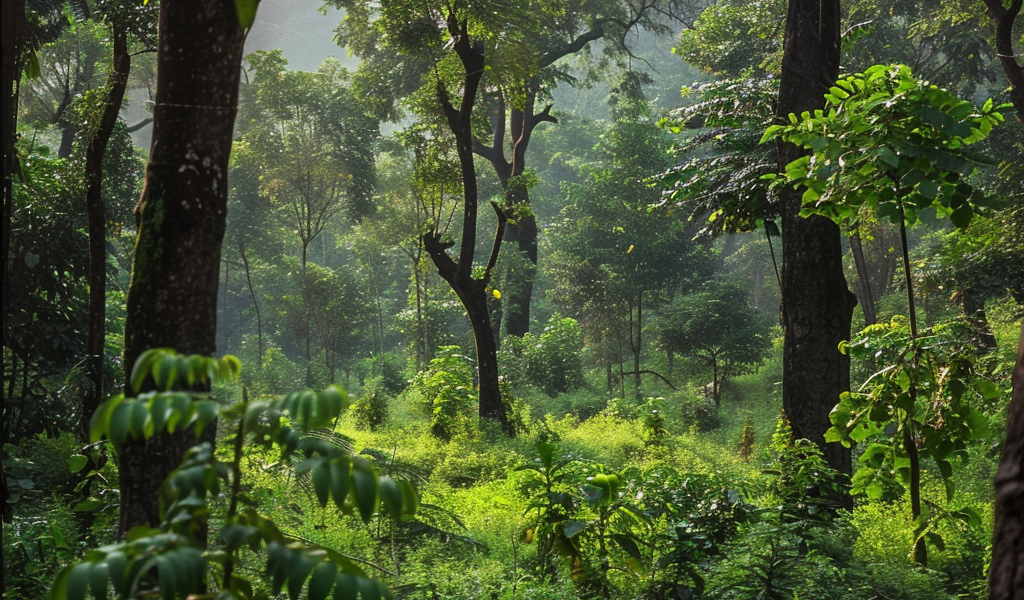World Forest Day 2024: Indian forests are facing a silent crisis as they are losing their ability to absorb carbon dioxide (CO2) due to climate change. Rising temperatures, erratic rainfall, and deforestation are weakening the vital role of forests in combating global warming. This poses a major threat to India’s ambitious climate goal of creating an additional carbon sink of 2.5-3 billion tonnes of CO2 equivalent through additional forest and tree cover by 2030, as per its Nationally Determined Contributions updated in August 2022.
Currently, Indian forests store 26,145 billion tonnes of CO2. The heart of the issue lies in photosynthesis, the process by which plants convert sunlight and CO2 into energy and oxygen. While increasing CO2 levels can initially boost photosynthesis, the warming sun acts as a cruel twist, hindering enzymes crucial for the process. Water stress from hotter temperatures and changing rainfall patterns further disrupts this vital function.
Recent research by teams headed by Subimal Ghosh at the Indian Institute of Technology, Bombay, and Rajiv Kumar Chaturvedi at the Birla Institute of Technology and Science, Goa, reveals a surprising truth. In key forested regions of Northeast, Peninsular India, and the Western Ghats, despite an increase in green cover, there has been a decrease in CO2 absorption over the past two decades (2001-2019).
The scientists studied CO2 absorption by forests by looking at leaf area index (LAI), a measure of the total green cover of a region, and net primary productivity (NPP), the total CO2 absorbed by plants after accounting for respiration. The study, published in the journal Nature on December 3, 2023, says that India, the second highest contributor to the post-2000 global greening, has recorded an 18.51 per cent increase in LAI during 2001-2019, but it fails to translate into increased carbon uptake due to warming constraints.
The studied forest areas recorded LAI increase of 6.75 per cent between 2001 and 2019. Still, their NPP decreased by 6.19 per cent in the last two decades, according to Ghosh, the lead author of the Assessment Report 6 Working Group I report published by the UN Intergovernmental Panel on Climate Change (IPCC) in 2021.
The studied forests contribute to more than 31 per cent of the NPP of India and are also warming hotspots, says the report. The findings only give a broad picture as they are based on satellite data alone. The next step should be to carry out ground observations.
This research sheds light on the urgent need to address the impact of climate change on Indian forests. It highlights the importance of developing sustainable strategies to protect and preserve the vital role of forests in mitigating global warming.





